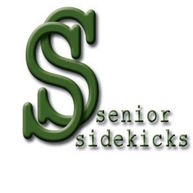|
Describe Yourself in Three Words. This is one of the games I include in my Course; Preparing to Parent Your Parent. Participants offer all kinds of responses; attributes like insightful or patient. Others describe demographics; father, wife, or daughter. Some describe themselves as fans of sports or certain teams. A few describe their occupations or religious affiliation. I write all their responses on the board.
Then, I ask the group, “What kinds of descriptions are on the board?” We assign various categories. I ask the group, “What kinds of descriptions are NOT on the board?” This usually meets with silence. Often I must offer some categories. Typically, people do not describe themselves by their income level. I offer that option. Then, I ask the group to look for any self-description that includes a diagnosis. None! This game highlights the difference in how individuals see themselves compared to how society sees seniors. An individual can be anyone of any age. When seniors describe themselves, they use a variety of terms. When society describes them, it is often diagnosis-first! Age is a stage of life, not a disease. Life has many aspects. Health is one of them; not the only one. Unfortunately, we see those who are aged as = ill. There are consequences resulting from such a one-dimensional view. If others will only really listen when you talk about your chronic conditions, it encourages a mental focus on those conditions. If the only time you’re touched is in the context of a medical process, you will seek such contact through medical occasions. Are we driving seniors into these situations because those places fulfill their human needs? All ages need attention and human contact. We know that children may behave badly in order to get attention. We know that small children who do not receive regular, loving touch develop more slowly. I observe that seniors also respond to attention to their non-medical interests and kindly touch. It’s time to ask for modification in our society’s view of aging. How did we become the society that treats one group differently? I suspect our original view of aging was reverence. The old ones were the elders (leaders) of the group. They acted as the library and history lesson. The old ones had an occupation; to teach or act as guide for the young. As society became more complex, the old ones were not as visible. Industrialization pushed some women, small children, and elders out of the workplace. In agricultural societies, all ages played some role and all worked as a team. Illness was present in all ages, not just the old. Basic health improvements like clean drinking water and public sanitation reduced deaths, especially in younger people. Basic care reduced some infant and maternal mortality. The old were not spared. Every winter, pneumonia took the lives of elders. This disease was once called the “old man’s friend” because it ended suffering from other chronic (untreatable) conditions. Thus, our ideas of the meaning of “old” evolved. It became equal to “sick”. Contrast this pattern with today’s medical care. We can treat pneumonia and other many chronic conditions. Elders benefit as well younger persons. Our viewpoint needs to evolve if we are to meet the real needs of our aging population. Seniors need less emphasis on more medical care; they want greater societal integration and quality of life. They describe themselves in three words in the same pattern as younger people; attributes, demographics, (former) occupations, sports fans, and religious affiliations. In 40 years, I have never met a senior who described herself by her diagnoses. Why should we? Would you like to talk with me about this topic?
0 Comments
Your comment will be posted after it is approved.
Leave a Reply. |
Author "A Senior Moment" is written by Ms. Sara Lieber, owner of Senior Sidekicks. Ms. Lieber has over 30 years of experience in senior care. Archives
March 2024
Categories
All
|


 RSS Feed
RSS Feed